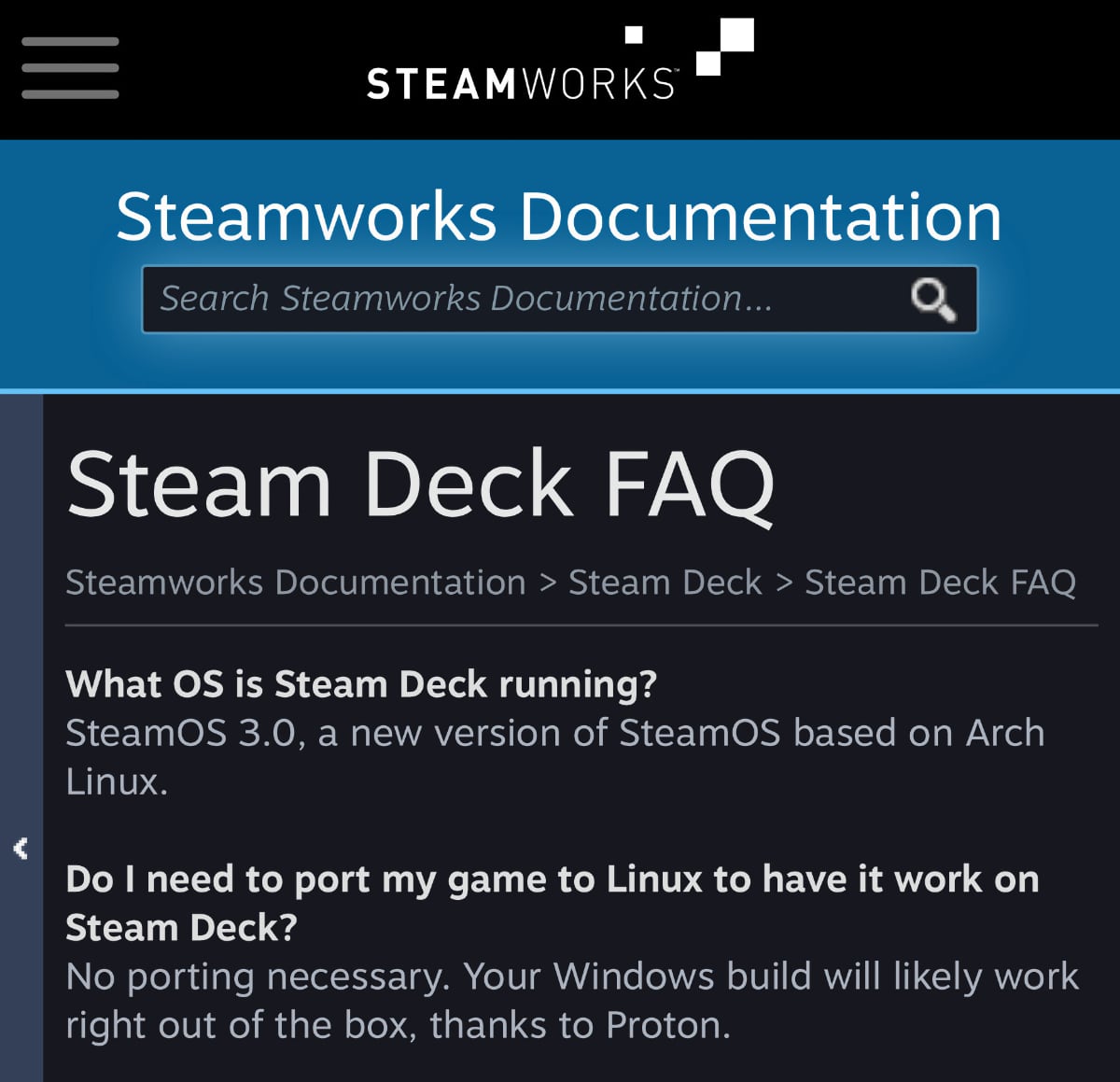Tag: wine
-
Valve’s Pre-Release Teardown of the Steam Deck Shows You How to Replace the SSD
and Warns Against it
-

Ethan “flibitijibibo” Lee May Retire from Programming Due to Valve’s Proton
Earlier today I spoke with Ryan C. Gordon, the internet’s #1 icculus, to get his opinions on Valve’s new seemingly anti-native Linux gaming stance. The long and the short of it is that Gordon is seeing the bright side. If the Steam Deck is successful, it will give thousands of people playing games their first…
-
Windows Pretendulation Is Bad Even When Valve Does It
Valve’s Pierre-Loup A. Griffais announced that they’re including their brand new fork of the WINE Windows pretendulator in a new beta product for Steam. They call it Proton. WINE is an open-source Windows API emulation layer that lets Linux users play Windows games without rebooting into Windows. I call this process “pretendulation” because it isn’t emulating…
